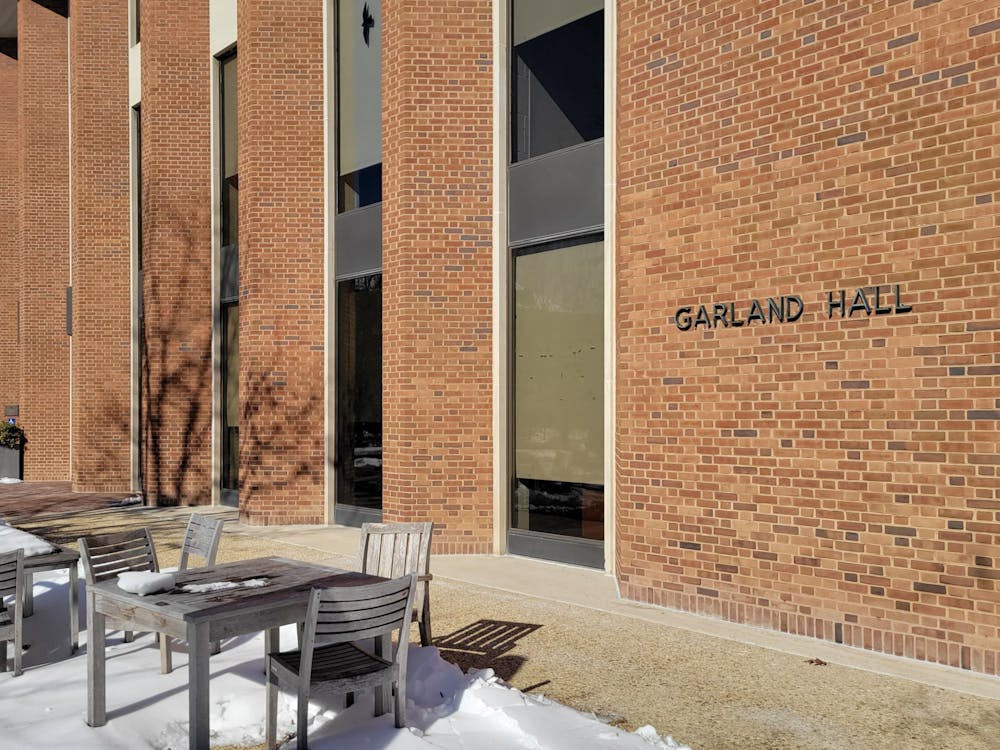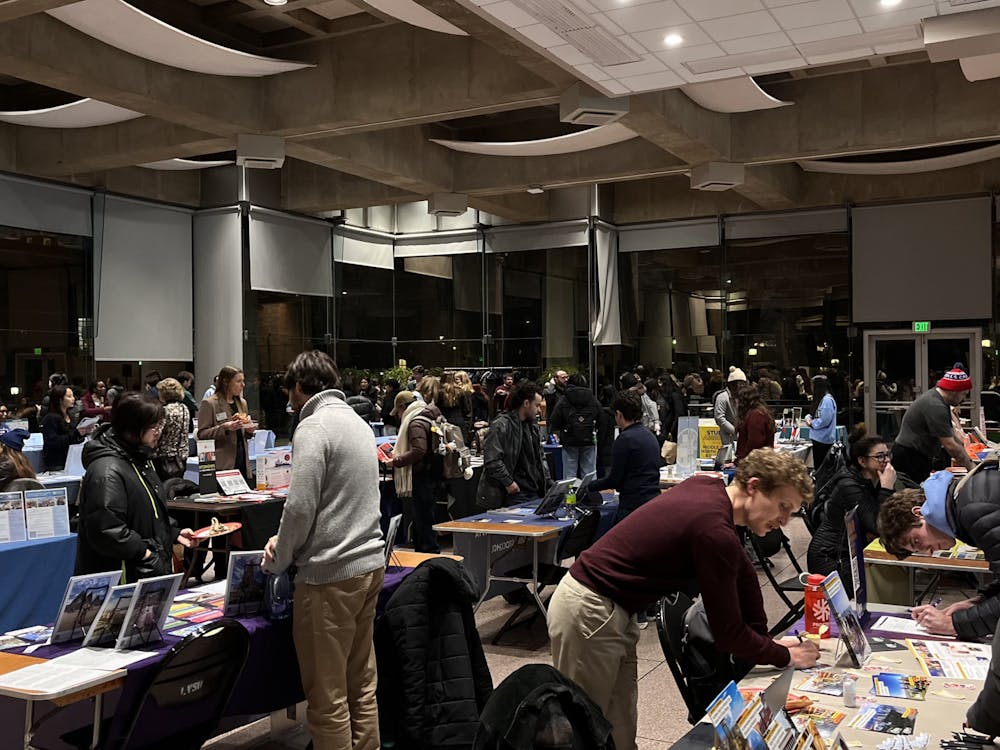At the Student Government Association (SGA)’s weekly meeting on Tuesday, Senior Class Senator Chase McAdams introduced the Senators and Student Organizations Pairing Act. In accordance with the bill, SGA’s Committee on Student Organizations (CSO) will pair each of eight student groups with a senator.
As CSO chair, McAdams explained that this will allow student groups to receive greater support and resources from SGA, like personnel contacts and knowledge of University policy.
“Of all the stuff we do, the organizations are the most important piece. They represent a majority of the student body; 80 percent of students participate in them,” he said. “If there’s anyone to take on this responsibility, it’s us.”
The Committee on Student Elections (CSE) presented changes to its constitution intended to allow SGA to interface more directly with students. SGA members are now permitted to campaign for re-election on certain social media and group pages, like those for fraternities, sororities or sports teams.
CSE requires that all posts be pre-approved by their committee and that all posts be published on public accounts. This eliminates some platforms like Snapchat and additional sites like class pages and First-Year Mentor group chats.
Despite concerns that this may give an unfair advantage to individuals who are in more groups, CSE member Noah Smith stressed that the goal of the amendment was to improve student engagement.
“Right now, our biggest goal is to expand elections and increase voter turnout. We were trying to increase getting that message out there in an organic way from the candidates,” he said.
These changes will be implemented in the upcoming election cycle.
In addition, the student body will now vote for candidates to SGA’s class councils and executive elections at the same time. According to CSE Chair Bahira Ahmed, this will encourage voter turnout and increase students’ interest in SGA elections.
“The election results will be announced right before spring break, so when the new members come back they will have four meetings to get acclimated to SGA procedures,” she said. “This is important... if you want to get more done during the year.”
At the meeting, the Executive Board presented an outline for their spring retreat, which they described as an opportunity for SGA members to bond with each other outside of their legislative and academic work.
Some SGA members questioned the ethical implications of purchasing SGA merchandise for themselves because SGA’s funding board, the Student Activities Commission (SAC), oversees nearly 200 student organizations on campus, excluding SGA.
Under the current bylaws, SAC prohibits student organizations from buying merchandise with the money it gives them.
SGA’s adviser Calvin Smith, the director of Student Leadership and Involvement, further explained these guidelines.
“SGA is... a directly funded entity by the dean of students. It is under University policy. SGA follows a different set of guidelines from the groups that it represents,” he said.
Nevertheless, Senior Class Senator Kahmil Shajihan suggested that members pay for the merchandise themselves. In response, Executive Treasurer Eric Armstrong argued that funding was not an issue, given that SGA still had nearly $18,000 in its account.
The more pressing concern, McAdams insisted, was the decision’s optics.
“The merchandise issue is not a good look. While we can do it, technically, we set the SAC bylaws which state that organizations funded by SAC cannot buy merchandise with that money. So I don’t know how good of a precedent it is to set to say that we can buy merchandise because our money is different from their money,” he said.
Executive Secretary Pritika Parmar argued that apparel could promote visibility on campus for SGA and make students more enthusiastic about the group. SGA members amended the bill so they could answer the merchandise issue at a later date.
In addition, SGA discussed the Committee Approval Act. The act would restrict the number of bills debated to include only those that have committee approval. McAdams, who introduced the bill, argued that it would greatly improve SGA’s efficiency.
“It makes no sense for the Senate to receive bills that have been denied. If we’re going to submit bills without committee approval, then it makes no sense to even have a committee review process,” he said.
According to Sophomore Class President Nathan Mudrak, this would violate the articles of SGA’s constitution by allowing two members of any committee to essentially decide what bills the other 26 members heard, as they could exercise their veto power to deny passage of the bill.
“I am really opposed to this bill because it is not constitutional. The committees provide recommendations, and the constitution specifies that ‘such recommendations are not binding themselves and must be approved or denied by the full Senate,’” he said.
McAdams withdrew the bill, believing that it would fail to pass if SGA voted on it.
With Junior Class Senator William Cho, McAdams also introduced the Alumni Weekend Kickoff Event Act.
SGA members will aim to promote a sense of community on campus by co-sponsoring a golf ball decorating contest with Alumni Relations, in which 20 student groups can participate. Alumni Weekend 2020 begins on Friday, April 24.




